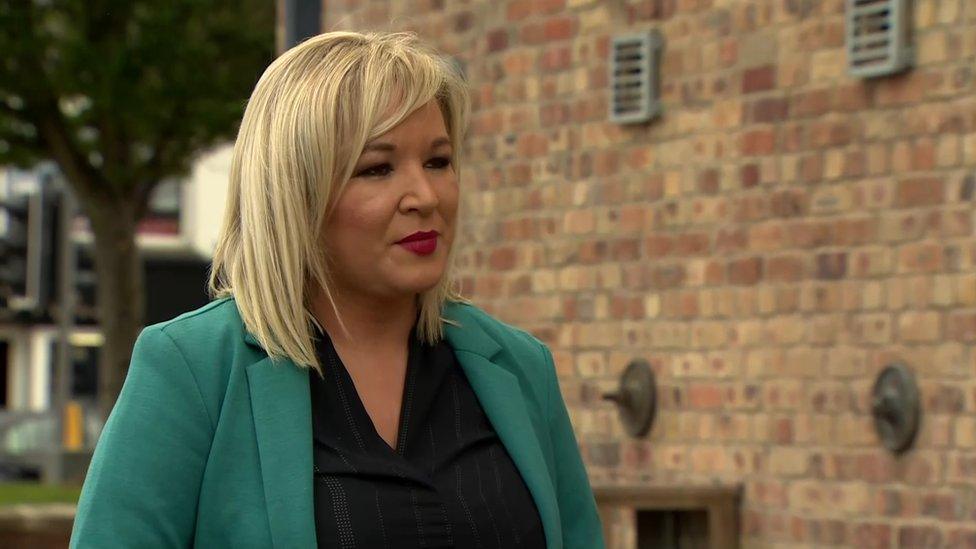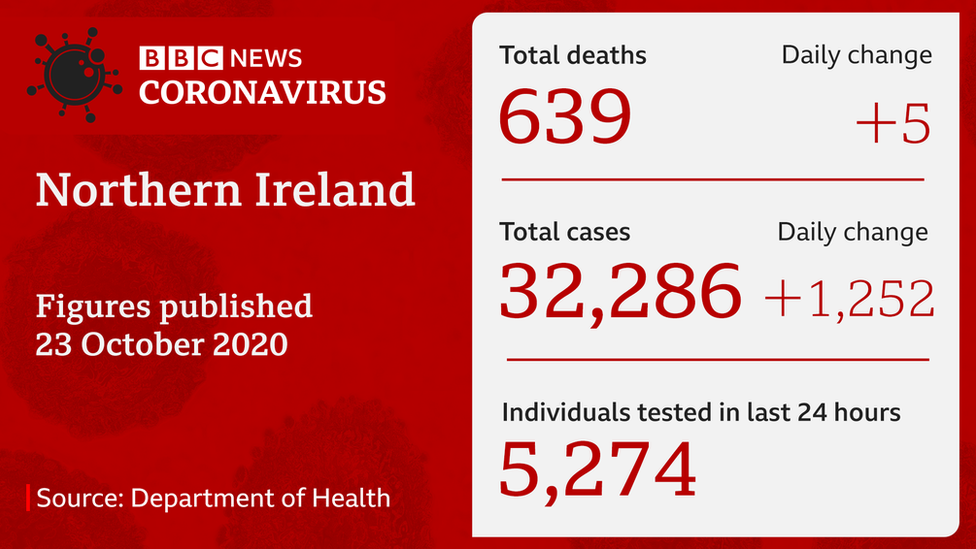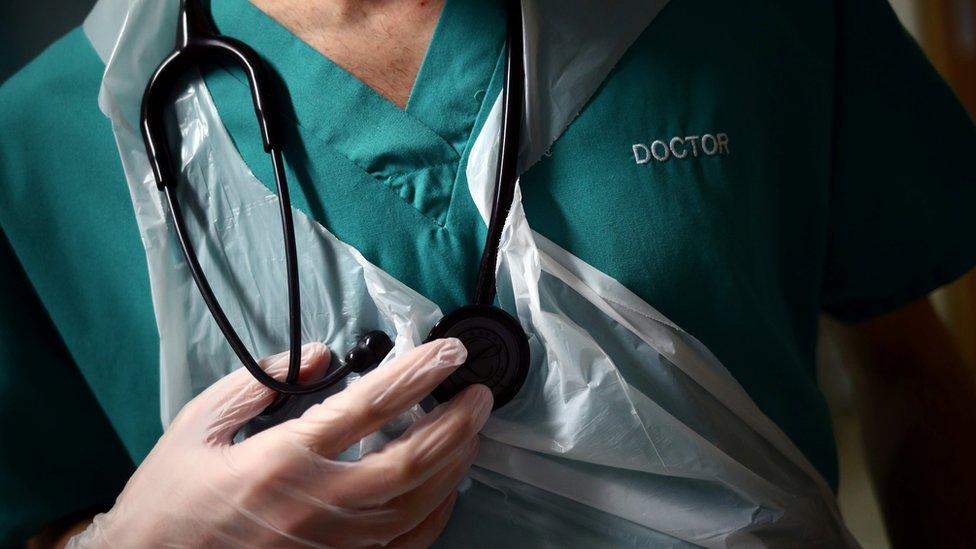Coronavirus: Michelle O'Neill says NI must avoid cycle of lockdowns
- Published

Michelle O'Neill said the executive wants to see schools reopen on Monday 2 November, subject to public health advice
Northern Ireland needs a strategy to deal with coronavirus that does not include a "cycle of lockdowns," Michelle O'Neill has said.
The deputy first minister was speaking at her first media appearance since having to self-isolate.
Earlier this month, a family member of Ms O'Neill's had tested positive for the virus.
The best way to avoid further lockdowns was to invest in a "first-class" test and trace system, she said on Friday.
Ms O'Neill made her comments as five more deaths and 1,252 new cases were recorded by Northern Ireland's Department of Health.
In the Republic of Ireland seven additional deaths related to Covid-19 were recorded, bringing the total number of deaths in the country to 1,878.
As of midnight on Thursday, the Irish Department of Health reported 777 new cases of Covid-19, bringing the total number of confirmed cases to 55,261.
'What comes next'
Speaking in Coalisland, County Tyrone, Ms O'Neill said the executive had to seize a "window of opportunity" granted with the four-week mini lockdown.
"What we have at the moment doesn't go far enough, we'll have to live with the virus and until such times as we have the vaccine, that's where we need to invest our resources," she added.
On Thursday, First Minister Arlene Foster also said NI had to "learn to live" with the virus and that every sector must adapt.
The executive is due to meet next week to discuss how to manage a further strategy.
"We have to keep the virus at a suppressed level and also open things up as much as we can," said Ms O'Neill.

"I believe that there'll be support for that in the executive and that is going to be our priority - what comes next."
The deputy first minister - whose party Sinn Féin had initially supported closing schools for four weeks - also said she wanted to make sure pupils were back in classrooms by 2 November.
As part of the restrictions agreed by the executive last week, schools closed for two weeks as part of an extended half-term break.
"It is our determination to have schools reopen but there are big stress points on our schools," she said.
"What we want to see at the end of next week is an assessment from the public health team about where things sit.. but it's all of our intention to have children return to school at the end of the holiday period."
Earlier on Friday, government statistics agency Nisra said seventeen Covid-19 related deaths were registered in Northern Ireland in the week up to last Friday.
That is six more than the previous week, according to the latest bulletin, external published by Nisra.
It counts deaths where the virus is mentioned on the death certificate.
Under that measure, the agency says 930 deaths occurred up to last Friday, including 519 (55.1%) in hospital.

The comparative Department of Health figure for the same date was 610. Its measure is based on a positive test result having been recorded.
On Friday, the department recorded five more deaths, bringing its death total to date to 639, and 1,252 more positive cases, bringing its total number of cases since the pandemic began 32,286.
Nisra's figures also shows the deaths of 84 people normally resident in care homes.
Taking that figure into account, and the 357 people who died in care homes, it means care home residents account for almost half of all Covid-19 related deaths in NI (46.8%).
In the week to last Friday, one Covid-related death occurred in a care home.
Eight people died in hospices (0.8%) and 58 at residential or other locations (6.2%).
People aged 75 and over account for 79% of all Covid-19 related deaths, with 28.4% of people who have died having a Belfast council area address.

The provisional number of all deaths for the week ending 16 October was 278.
That is 70 fewer than in the previous week (348) and 17 fewer than the five-year average of 295.

Excess deaths are those above what would normally be expected at the time of year, averaged over five years.
Nisra found that 1,288 excess deaths have been registered in the past 29 weeks.
- Published29 July 2021

- Published15 October 2020
